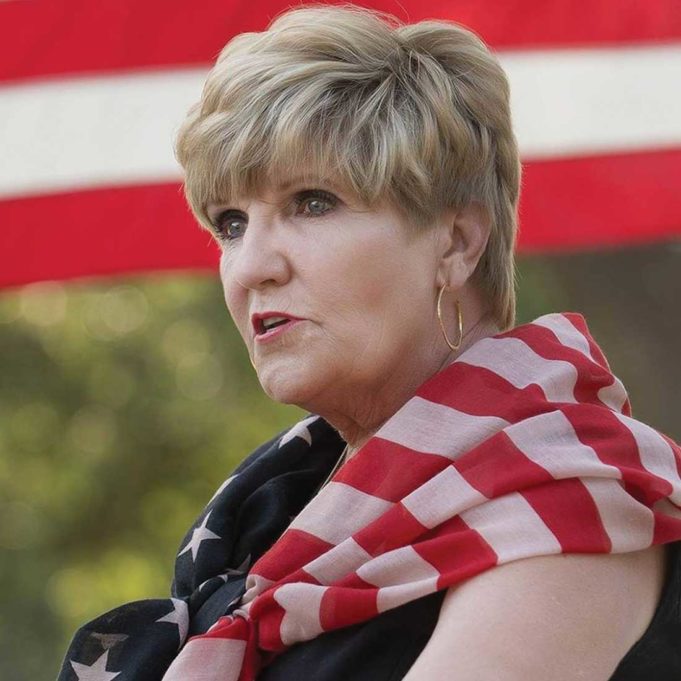Fort Worth Mayor Betsy Price’s tentative response to SB 4 earlier this month was no surprise. Sure, she was out of step with the mayors of Austin, Dallas, Houston, and San Antonio, who long ago joined a lawsuit challenging the law intended to crack down on sanctuary cities. Flying under the radar is the so-called Fort Worth Way.
You know what else was no surprise? Price’s Trumpian hesitance to say boldly and right up front that the Ku Klux Klan, Nazis, and other white supremacist groups are deplorable scum who have the right to march and protest but should have no rights at any bargaining table.
Hesitance and insecurity are the Fort Worth Way as well.
In her first statement in response to the Charlottesville riot, our mayor said, “Acts of violence and these hateful ideologies from these groups are not welcome and will not be tolerated in our community.”
In these times, hesitance to call out hate groups by name signals an apparent willingness to allow blame to spread to the groups standing in opposition. You know, actual victims of oppression and their sympathizers. Frequent hesitation by President Trump to call a racist creep a racist creep is what gives hate groups the encouragement to get louder and bolder. Nowadays, the hatemongers don’t even bother wearing hoods.
To her credit, Price issued a follow-up statement that mentioned the KKK and white supremacists by name. But compare her tepid statement to that of Dallas Mayor Mike Rawlings, whose first response was “people who support neo-Nazis and white supremacists should be called out for what they are: pure evil.”
But that’s Dallas. Fort Worth tiptoes around volatile issues.
“The Fort Worth Way” can be translated several different ways. It can mean, “We’re friendly and down-home. Yay us!” Or it can mean, as former Tarrant Regional Water District board member Mary Kelleher once described it, “The social phenomenon in which the treatment you receive by government agencies and politicians depends upon who you are, how much money you have, and who you know.”
Yet another definition is, “We do things quietly and behind closed doors, unlike those loudmouths in Dallas.”
Fort Worth stepped lightly around the Civil Rights era of the 1950s and 1960s, back when people such as the Rev. Martin Luther King Jr. were leading marches and angry white people were throwing rocks. While many people in this city didn’t want blacks to go to schools with whites, Fort Worth officials followed federal integration laws. Choosing to adapt to new laws rather than fight them or promote resistance kept Cowtown relatively quiet during those explosive times. Racism didn’t exactly end, but racists weren’t allowed to call the shots, and most people tried to live in peace. It’s not surprising that Fort Worth never erected a bunch of Confederate “hero” monuments around town.
Former Fort Worth City Councilmember Bert Williams (1979-1989) described to us once what it felt like when he and another black man, local minister A.E. Chew, were denied membership at Woodhaven Country Club in 1983. At the time, a mere 35 years ago, no African-Americans belonged to Woodhaven or to any of the city’s other half-dozen private country clubs.
In many cities – then and now – the first reaction by someone in Williams’ position would be to file a discrimination lawsuit, hold protests, and court the news media. Instead, Williams worked with sympathetic Woodhaven members to change club bylaws, making it harder to discriminate. Williams reapplied for membership a year later – and was denied again.
Word got out, and the national news media, including 60 Minutes, requested interviews with Williams.
At the same time, hundreds of African-American visitors were coming to town to attend the NAACP’s state convention. Many of them vowed to protest the Woodhaven snub. Williams, though, preferred the Fort Worth Way. He discouraged the protests and kept working with compassionate club members. Together, they broke down the color barrier without protests or outside help. In 1985, Williams became the city’s first black member of a private country club and would later push for fair housing ordinances. He said getting things done in this town was easier when people sat down and resolved problems “like intelligent human beings.”
That soft approach isn’t much appreciated by people today, who want to get things done fast and with as much social media fanfare as possible. But the Fort Worth Way is how things have been done around here for a long time, so Price’s mild reactions to recent events are not out of character or particularly surprising when viewed in context. Whether they are considered disappointing and lacking is up to voters.












